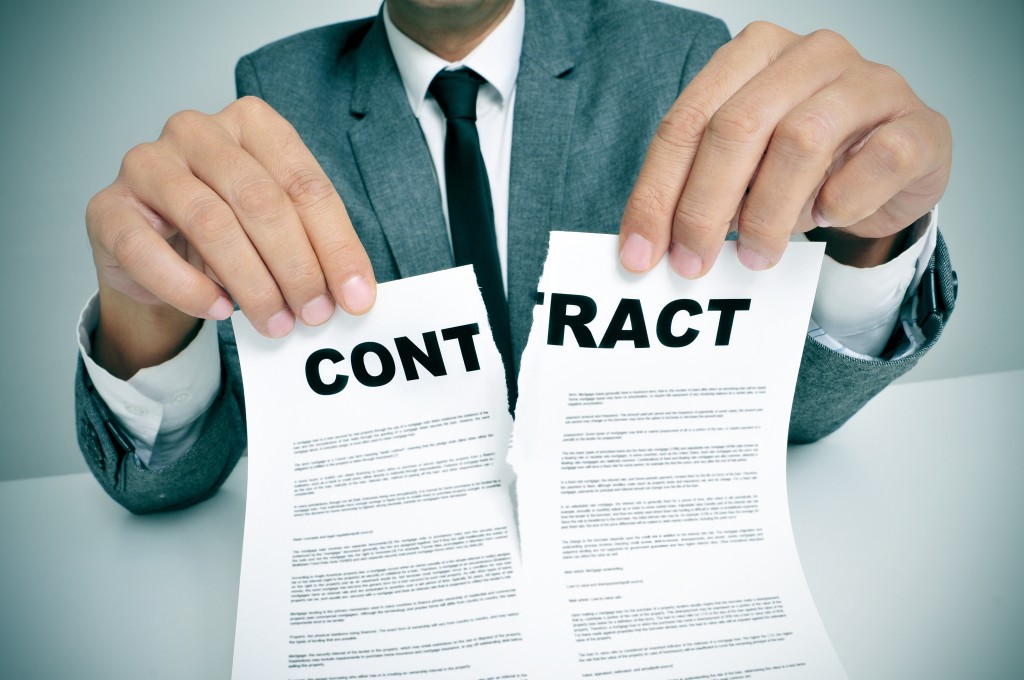Top Ten Insurance Recovery Issues For Corporate Policyholders
More now, than any other time that we can remember, policyholders in corporate insurance recovery cases seem to be getting it wrong. Policyholders are losing corporate insurance recovery cases that they deserve to win. As we study insurance coverage decisions, we cannot help but notice the cause of the problem: policyholders are either being given bad advice, or they are making critical preventable mistakes. This is the reason why we developed this Top Ten List of Insurance Issues for Non-Insurance Lawyers.
First, a little background into the problem. Lawyers are critically important to corporate policyholders, both with respect to advising on claims, but also with respect to reviewing coverage. Lawyers, whether in house, or at an outside law firm, are some of the first to become aware of potential claims. Ever evolving insurance coverage case law, a complex statutory overlay governing insurer conduct, and incomprehensible insurance jargon, can make it difficult for lawyers to obtain straightforward answers to insurance problems. Fortunately, a little knowledge goes a long way towards preventing corporate policyholder missteps.
As history has shown, it is not all that easy to obtain accurate advice on corporate insurance issues. As most partners at large prestigious law firms know, insurance ties with the legal industry are are vast and complex. Arrangements between law firms and insurance carriers to control corporate insurance claims are widespread. Most large law firms represent insurance carriers in some capacity, and rules of engagement with insurers are often adopted to keep insurance company business, and to minimize law firm financial backlash from insurers when they pursue corporate insurance claims. These rules of engagement may include, among other things, a prohibition on filing bad faith lawsuits, limitations on discovery against insurers, and an understanding, that if things get rough, strings will be pulled to pull off the attack dogs.
Non-insurance lawyers looking into insurance claims should also be aware that insurance brokers face similar challenges. Any good insurance broker will admit that they are walking a find line when it comes to providing advice on corporate insurance claims. Insurance brokers are typically paid by insurers, and, in many instances, they are financially rewarded based on losses paid on their accounts. They make more if their client-policyholders do not make claims. As a result, their first reaction may be not to tender a claim, or to try and convince a policyholder that a claim is not covered. If a policyholder persists, the next step that brokers use to manage the claims process is to involve their in-house claims advocacy group. These in-house claims advocacy groups serve the purpose of managing client expectations by helping them align policyholder client beliefs with insurer demands. Communications with broker claims advocacy lawyers, however, are likely not privileged, and given their goal of compromising claims, they oftentimes create smoking gun documents that can seriously harm a policyholder’s coverage position.
Non-insurance lawyers should should take these considerations into account. Many a policyholder has been persuaded by an insurance company lawyer or insurance broker to compromise a claim, or worse yet, to drop a claim that an insurer is passionate about denying. Independent accurate claims advice is difficult to find.
Top Ten Insurance Recovery Issues For Corporate Policyholders
Our top ten list of insurance recovery topics for non-insurance lawyers includes:
- Notice,
- Defense Costs,
- Government Investigations,
- Independent Investigations,
- Cyber/Intellectual Property Claims,
- D&O Insurance Terms and Conditions,
- Post-Merger Acquisition Claims,
- Rescission,
- Criminal Activities, and
- Privilege.
1. Notice
Insurance policy notice provisions are often treacherous for policyholders, but with proper analysis, coverage can be preserved.
2. Defense Costs
The second issue in our continuing analysis of the top ten insurance issues for non-insurance lawyers is the full recovery of defense costs. Insurance carriers make it difficult for policyholders to get a fair read on coverage.
3. Governmental Investigations
More often than not, governmental investigations are covered.
4. Independent Investigations
The fourth topic in our list of Top Insurance Issues for Non-Insurance Lawyers is coverage for so-called voluntary or independent investigations.
5. Cyber and Intellectual Property (IP) Claims
In this video, we address an oftentimes overlooked area of coverage, that is, coverage for cyber and intellectual property claims under general liability insurance policies. Don’t overlook “advertising injury” coverage provided in general liability insurance policies.
6. D&O Insurance Policy Terms and Conditions
Sophisticated organizations routinely engage outside counsel to review their Directors and Officers liability insurance policies. If done correctly, it can result in vastly superior coverage. But, relying on standard forms and pre-drafted policy enhancements can be a recipe for disaster.
7. Post-Merger/Acquisition Claims
Corporate acquisitions and spin-offs are common. Most people involved in corporate acquisitions are aware of the concept of tail coverage, but certain things need to be done to a tail policy if an acquiring organization intends to pursue coverage.
8. Rescission of Insurance Policies
In the last ten years, there has been an explosion of rescission claims by insurers. More and more, insurers are asserting rescission as an additional reason for denial of coverage. In reality, rescission is a drastic remedy that has no place in insurance law.
9. Insurance Coverage For Criminal Activities
Many non-insurance lawyers assume that criminal activities are not covered by insurance; in fact, the exact opposite is true.
10. Privilege
In our final installment of the Top Ten Insurance Issues For Non-Insurance Lawyers we address the issue of privilege. Case law addressing insurance broker communications has not ended well for policyholders, but steps can be taken to minimize adverse results.
Questions About Corporate Insurance Recovery
Over the years, insurance recovery law has become highly specialized. The nuances of insurance law may fall outside the scope of in-house or outside counsel expertise. Knowing what questions to ask can go a long way towards identifying key insurance issues and preventing needless insurance-related mistakes
We hope that this series was helpful. If you have any questions about these or any other corporate insurance coverage issues, please feel free to contact us.
Below are transcripts of all the videos:
Introduction: We put together a list of the top 10 insurance issues for non-insurance lawyers.
A number of months ago we got the idea of putting together a top 10 list of insurance issues for non-insurance lawyers. Why did we do this? Well as a firm we had been reading cases coming out weekly, monthly, negative cases, bad cases where policyholders lost in insurance recovery cases. And a lot of those cases were situations that could’ve been prevented. If there’s nothing that gets us more passionate than, cases that are being lost that should be won. So what we did is, we looked at these cases and said what’s going wrong? Something is happening here, obviously policyholder should not be losing these cases but what are they missing? Where is the bad advice coming from? Why are they missing these issues? And how come it’s ending up hurting them after spending hundreds of thousands of dollars on theses coverage fights and having to lose them when the court tells them they did something wrong at the early stages? So basically we came up with the top 10 issues for non-insurance lawyers should be aware if they’re going to be cognizant of the issues so they know when it’s time to bring someone in, when it’s time to give notice, when it’s time to do something that they wouldn’t normally think about.
So those top 10 issues that we think non-insurance lawyers should pay attention to first number one notice, two defense costs, three government investigations, four independent investigations, five cyber intellectual property claims covered under general liability property claims, six D&O insurance terms, seven post merger acquisition claims, eight rescission, nine criminal activities and ten privilege. And that’s what our top 10 issues are.
Top 10 Insurance Issues: #1 Notice
So, the number one issue that we’re going to talk about today is notice. So, notice is really the most basic of coverage issues. It’s really not even a substantive coverage issues. It’s whether you have to give notice to trigger your policy and when you give notice. It’s just amazing how often we see clients and companies out there that we read about in newspaper and trade publications where they don’t provide notice at all. Or they provide notice late, and they’ve taken a great insurance policy, they taken a claim that fits right four square right within the policy and they’ve completely forfeited the coverage of the policy because they didn’t give notice timely. It comes up more often than you would think and it’s something that is really avoidable and something that should be addressed properly by either outside counsel or your in-house counsel.
So there are two ways that it comes up. Typically policies are broken down to either occurrence based policies or claims made policies. Occurrence based policies are typically your commercial general liability policies, and there may be some other policies within that space. The other group of insurance policies is what we call claims made insurance policies which involves your directors and officers or your D&O policies, your employment practices liability policies and your errors and omissions, professional malpractice if you will, insurance policies. These operate very, very differently than occurrence-based policies with respect to notice. All of these policies will require notice be given before a claim and that claim has to have had occurred during the policy period. And the claim has to be a written complaint or some other written demand for money, typically. And, secondly, notice of that claim has to be brought either in during the policy period, not 10 years later, not 15 years later, but during the policy period, or some very, very short period of time after the policy has expired, maybe 30 or 60 days. So, giving notice, and timely notice, under claims made policies is of utmost importance.
Let me give you a very recent example of how notice works and how important it is and the problems that could occur if it’s not done correctly. Recently there was a hospital that was sued related to problems or issues associated with an outside cancer diagnostic company loosely affiliated with the hospital. A lawsuit came in, hospital gives notice to its primary insurer because at the time the primary insurer, had limits of liability, the amount of insurance proceeds available of $10 million. The hospital thought that the claims would be resolved within $10 million. So based on that the hospital did not give notice at that time of its excess insurers. Six or eight months into the litigation the plaintiffs had amended their damage claim and now what was thought to have been a $6 or $7 million claim turned into a $20 or $30 million claim. The policyholder, the hospital system, then provides notice to excess insurers and one of the excess insurers, providing $10 million of additional coverage, denies. Why? Because its policy very specifically says you need to provide us notice of the claim as soon as practicable but in no event later than 30 days after you first give notice to the underlying insurance carrier. They did not give notice for six months after that first notice and based on that the excess insurer denied coverage $10 million. Except for that late notice the hospital would’ve been entitled to $10 million more to cover the underlying lawsuit. That is a very, very good example of how notice is so important and really something that every company needs to be thinking about.
Top 10 Insurance Issues: #2 Defense Costs
So the second issue for our top 10 insurance issues for non-insurance lawyers are defense costs. This is an incredibly important aspect of what we do as an insurance coverage law firm, because typically what happens is when there is a claim dispute there’s an underlying piece of litigation more often than not the attorneys fees are the number one costs incurred by a company. Maybe they don’t have to settle, they never get to trial or settlement is very on the low-end or the defense costs have exhausted all of the available insurance limits. So defense costs, what we consider a lot of these insurance policies, sometimes to be considered litigation defense policies because its really the primary funder for your very expensive outside counsel. So it’s a very important issue.
And there are two points here that I want to cover. The first is insurance carriers have many tools and many arguments if they do agree to provide defense costs, advance you defense costs, to lower the amount that they are going to pay you. They do this in many different ways. First they will say, you have fives causes of action asserted against you. Of those five, only two are arguably covered. Three are definitely not covered under the policy, so we are only going to pay for 2/5 of every lawyer dollar that you incur and pay. So that’s number one the way they bring it down.
The second way they try to lower their obligation to you to pay, is they will tell you, you can use that large law firm in New York City or Washington, DC. They charge $1000 an hour and they wear fancy suits. That’s wonderful. But we, insurance company, have our own insurance litigation guidelines and the maximum that we will pay your lawyer is $175 an hour or $250 an hour. Of course, anyone who’s litigated in New York City or Washington, DC realizes that that is just a very, very unreasonable hourly fee. And so what happens is you are constantly getting shortchanged by the insurance carrier as even when they do agree to take on some responsibility for defense costs. They are making all of these efforts to lower the amount that they are paying you, increasing the delta, where you’re either going to be out-of-pocket, as the company, or maybe your outside lawyer is going to be out-of-pocket because he or she has to share some of that shortage with you. And now you’re going to have a sort of unhappy litigation defense counsel working with you. So that’s the first issue that you need to be mindful of which leads to the second issue. How do you deal with that?
We deal with that at Miller Friel on a daily basis because it comes up in just about every claim that we deal with. So we negotiate very, very, very hard with the insurance carriers on this. We negotiate on this allocation of what’s covered and not covered. Which parties are covered. There’s a lawsuit. There are six defendants. Carrier will say only three are covered in the policy, the other three are not covered in the policy. So there goes 50% discount. They look at the causes of action, they take another 40% discount.
So we negotiate very aggressively about who is covered and not covered. Which causes of action are potential covered and not covered and we also have very, very, very hard discussions through good sound legal analysis about why claims potentially could be covered, why the insurance companies are wrong. So that’s how we, as Miller Friel coverage lawyers sort of bring our resources to bear and why it’s important for us to do it.
Two reasons, the defense counsel whose been hired by the company to defend them in the underlying litigation, they either because they represent insurance companies and they have their own conflicts at their law firm, cannot take on this position where they are acting adversely to insurance companies. So they can’t do it for you. Or number two, those lawyers who are acting as your defense counsel are sort of in an awkward position. They are defending you, they want to get paid by the insurance company, but they don’t feel very comfortable trying to go after the insurance company aggressively and zealously because they want to get paid. And they don’t want to sort of upset the apple cart, if you know what I mean.
So that’s why a firm like Miller Friel, with no conflicts, where we aren’t beholden to the insurance carriers. We don’t have these other issues. Where we really go in and what we try to do in this situation with defense costs, is not only help our corporate policyholder client, the company, the defendant, but we are also helping their outside defense counsel they hired, because the better we do our job the better it is for our client and the better it is for the underlying defense counsel because it means they are getting higher pay and better reimbursement rates. So it’s really a win-win for everybody in the situation.
Top 10 Insurance Issues:
#3 Governmental Investigations
The third topic that we think non-insurance coverage lawyers need to be aware of is coverage for governmental investigations. If there’s one area that we get passionate about where we feel that there might be some miscommunications as to what covered and what’s not covered that area would be governmental investigations. It is very important for folks to understand that these types of claims, as a general rule, are covered. Now there are some issues.
Some of those issues are timing of the claim. For example, any different governmental agency can be taking a look at your company for whatever reason. Let’s say they send you a letter, you get that letter and the first thing you do is you hire a counsel because its serious stuff you need to have a defense counsel to understand how are we going to deal with the SEC? How are we going to deal with FinCIN? What’s the proper thing to do? Now the proper thing to do most times is to work with the government, of course. If you work with the government you’re likely to get better treatment. You’re likely to get more fair treatment. So the last thing defense counsel would tell you is you don’t want to fight the government. It’s just unnecessary, these things can usually be resolved. And they can certainly be resolved in a better manner if you work with the government.
So the reaction of a company then, rightly so, is hire a defense counsel and get the government the documents they need. Now the problem is these cases are front end loaded. They have a lot of costs associated with them. Sometimes you have to go into foreign subsidiaries and get documents, sometimes you’ll have to find hundreds of thousands of documents and go through them, call them out, pull out privilege, at the end of the day it’s like being in a major lawsuit, but the lawsuit hasn’t even started. So you’re spending that kind of money, tens of millions of dollars sometimes, early on, to get the government what the government needs.
We find that a lot of times that stage, which is the early stage, is not fully comprehended by corporations as far as what they can do with insurance. As defense counsel, because I’m talking to other lawyers here, as defense counsel, you need to be aware that as soon as you begin to start billing your client, you need to start thinking about insurance. And the reason is because every penny you spend before you are thinking about insurance maybe a penny your client doesn’t get back.
That’s the real reason why we’re real passionate about governmental investigations. A) they are big, there’s a lot going on and they’re very expensive and B) we think some errors are being made by counsel and clients just because they’re not aware of the fact as a general these types of governmental investigations are covered. Where are they covered? They are generally covered under D&O Insurance policies.
So, I mentioned there are a couple areas where you can get in trouble. The biggest is notice of a claim. You need to be aware of that. Now, I say that not because there’s a simple solution. There is no simple solution to this. As soon as you get involved in a governmental investigation you need to have somebody take a deep dive, thoroughly evaluate the insurance policies. You need to determine when something becomes a claim. There is case law out there, that an informal investigation is a claim, a letter is a claim, a subpoena is a claim, sometimes a lawsuit is a claim. You need to understand how your insurance policy functions.
But let me just do the boring part here, case law. There’s a lot of case law on this. You need to be aware in general, there’s a lot of case law out there. You need to be aware as a general rule, these things are covered. Let me give you a few case citations. 1) The ProMedica Heath case, FTC investigation was covered. 2) MBIA Inc. v. Federal Insurance, SEC oral requests for documents was covered. That’s an oral request, better yet, it’s a second circuit, a very influential circuit. 3) Polycom v. Crum & Forster, that’s an eighth circuit case again an influential decision. That case held in a criminal matter it’s a grand jury subpoena was found to be a covered claim. So again, criminal matters covered, grand jury subpoenas. And last 4) Neilsen Automotive Group case, that found an Attorney General investigation by a state was covered.
So governmental investigation, first thing you should think, is it’s covered. What do I need to do? Second thing you need to think about is how complicated is it? Is it something that I’m going to be able to handle myself or is it something that I need coverage counsel for. One of the areas where we’ve seen a lot of mistakes being made, perhaps more than any other area is when to tender an insurance claim to a carrier. There are no simple rules on this you have to understand the policy and you have to be very, very careful about what you do.
Top 10 Insurance Issues:
#4 Independent Investigations
So point number four, or the fourth issue that we think insurance, non-insurance coverage lawyers should look at is so-called independent investigations. I’d also group in there voluntary investigations. So, these come up in a number of different situations. It could be under a federal statute FCPA for example.
You’re sort of aware that something might happen and might have happened over in say China. So, you’ve got to self-report, I mean you ask any FCPA lawyer what to do, you got to tell the government that you’ve got an issue and you going to have to do that quickly. The reason to do that is to avoid the serious repercussions.
So, what happens is you find out something happened you don’t know how bad it is. You send your team of lawyers out there to figure out what’s going on. That team of lawyers is burning $200,000 or more a month trying to figure out what’s going on and at the same time there’s insurance for it but the insurance carrier has not been told about it.
If you ask a defense lawyer what’s going on? Well, it’s voluntary. Okay, should we tender that to the carrier? I think maybe we should. Well, we generally don’t tend to voluntarily claims to the carrier. But then when you delve into it a little further, voluntary, is it really voluntary? Are you doing this because you want to or you’re doing it because you have to?
You’re doing it because you have to and there are serious repercussions, there’s nothing voluntarily about it. In most cases you need to start seriously thinking about insurance the minute you start hiring those lawyers to go out there or the minute you start billing as a defense lawyer.
So, that’s a voluntary investigation. Independent investigations, those can come up in different contexts. An independent investigation might be something like you’ve got a serious problem. Your company is sued and the people are alleging some serious bad stuff. May or may not be true, but there’s bad allegations out there.
So, as company what do you do? Well do an independent investigation? One of the reasons to do that you want to keep the independent, so to speak. You want to do it to find out what happened. Giving an example, Penn State had a big issue with sexual abuse, they did an independent investigation. That’s the type of study I’m talking about, where the company spends piles of money hiring a separate law firm to cover those things.
Now, the typical reaction might be well that’s not covered under insurance, we’re not defending the claim, we’re independently evaluating it. But the answer’s a little more complex and the answer is it may be covered.
For example, recent AIG policy, if you look at the definition of what the defense costs that are covered, it covers defending claims. Well an independent investigation is not a really defending claim, but also covers investigating claims. So, you think about that, investigating? That’s what an independent investigation is. All it says take a careful look at voluntary investigations and independent investigations.
Take a look at the policies, see if you have that good language, and there’s other examples of good language too. But see if you have the right thing and get that information off to the insurance carrier. Make a claim.
Top 10 Insurance Issues:
#5 Cyber and Intellectual Property (IP) Claims
The fifth area that we’d like to talk about that we think non-insurance lawyers need to be aware of is, we call it cyber and intellectual property claims. But the real title should be the broad scope of coverage afforded under some of these standard form policies that everybody buys, and here it’s general liability insurance.
So, cyber claims are big and unfortunately they’re bigger than most companies would want them. There’s a lot of them out there and there’s a lot of money being spent on cyber claims. Intellectual property claims, intellectual property disputes are all over the place. There’s many lawsuits have been filed, they’re being filed all over the country.
One business claims the other business is infringing on their copyright, they claim one business is doing something they shouldn’t do, the classic business torts that you learn about in law school. Let me cover the cyber claims first because I think that’s the starkest example.
When the insurance companies are selling broad cyber coverage, they’re not paying claims on that coverage, they’re denying those clients but they’re selling a product and then they’re yanking it back when a claim comes in and they’re saying were not going to pay for that.
So, corporations are caught in between, what do we do? But silently behind the scenes there’s been a whole series of cases that have looked at cyber liability under these old policies, general liability policies which have been around since the 50s, maybe the 40s.
These are policies that cover bodily injury, property damage. They cover if you break your leg in someone’s property, they cover you if you accidentally start a fire and burn down someone’s warehouse, those are the classic things they cover. But they cover something called advertising injury.
And advertising injury is probably one of the most overlooked areas of coverage in insurance coverage law. Advertising injury can be exceedingly broad. In fact there has a series of cases one, after the other, that have held that cyber liability is covered under these old advertising injury provisions under the general liability policies.
So, on one the hand companies are spending piles of money on this new-fangled products and the insurance companies are turning a blind eye and denying coverage and are not paying those claims.
But on the hand, policies they’ve had for years, they bought every single year for tens of, hundreds of, well depending on the company, they’ve bought since our history. But being around general liability policies cover some really simple stuff, and everybody has every company has it.
So, on one hand the stuff that’s supposed to cover it isn’t, on the other hand the stuff that nobody thought that covered it does and it’s under those advertising injury provisions.
Just to give you some background information let me cite a few cases here. So, if you’re inclined to do so you can go back and check the cases and understand why these claims are covered as advertising injury as cyber claims.
Now, the first one is Netscape Communication case, ninth circuit case. The second one would be a Fieldstone Mortgage Company case out in Maryland and the third one would be a C.M.A. Mortgage case out of Indiana. These 3 cases are cyber liability type of cases were covered was found. So, citations will be up to take a look at them if you have that kind of an issue.
Now the other issue that I think’s important to understand is just how expensive these cyber liability cases can be. It was reported I think a year ago that the average cost was three and a half million dollars roughly. Three and a half million dollars for a cyber liability attack. Just recently it was reported that the average cost of a cyber liability attack was $150 million.
Obviously you can’t compare these studies as apples to apples probably apples and oranges a bit but the bottom line is its expensive and the costs are going up. So, that’s general liability coverage. I talked a tiny bit about cyber coverage but I want to talk about the intellectual property piece because we’ve had intellectual property lawyers across the country come to us and say, “You know what in our book that’s a number 1 issue the intellectual property coverage,”
Because their clients are being sued right and left by other technology companies claiming that someone infringed on either their trade, slogan, trade, dress, copy or whatever it may be, but someone infringed on their business model. So, these claims are very common in corporate America especially with the technology companies.
So, what we’re finding is those claims can be covered under general liability insurance policies, again under the advertising injury provisions. So, let me just give you one example. A major consumer electronics company, one that you would be well aware of, our client, you probably have a number of their products in your home.
They were sued by another entity basically claiming another entity which is a world renounced name sued by one goliath sued by another goliath over intellectual property issues.
They’re basically claims you shouldn’t have put our, one company says you shouldn’t have put our stuff in your product, it’s ours you shouldn’t have taken it, it shouldn’t be there and they want all kinds of damages, major damages.
Now I don’t think the suit had that much merit, the underlying suit, but it was costing a pile of money and sometimes corporations fight each other that way and it’s unfortunate but it happens.
So, our client said, “What can you do for us,” and we said, “let’s take a look at it.” Looked at every single policy under the sun, guess where the answer was? General liability policy advertising injury. So, we went back to the insurers and we talked about you know what can we do here, they said, “You can’t do anything we denied coverage, we’re sorry it’s not covered.”
We said, “We think you’ve got it wrong.” We wrote them a couple of letters, they wrote us a couple of letters. At the end of the day we settled for a hundred cents on the dollar for defense costs and a hundred cents on the dollar for settlement. So, our client got off spending zero which was a great result.
Top 10 Insurance Issues:
#6 D&O Insurance Terms
The sixth issue I’m going to address in our series on top 10 insurance issues for non-insurance lawyers, are the negotiating terms and conditions of D&O policies, director and officer policies. We selected D&O policies for two reasons. One, we mentioned this in other presentations on this website, is the importance of D&O for our corporate clients. It’s just one of the most valuable corporate assets for any company. Number two, in our experience in negotiating on a renewal basis with underwriters or even for purchasing insurance within the first instance for newer companies, we have found based on our experience in this area is that we have the most flexibility and the most ability working with the underwriters in negotiating terms and conditions and enhancing those terms and conditions in favor of our clients for coverage. This is why we’ve selected D&O.
What happens when you are purchasing insurance or renewing insurance, you’re negotiating terms and conditions. Again, you’re relying on your insurance broker primarily. The issue with the broker however, is the broker is not a lawyer or is not a practicing lawyer. The broker is not aware of the most recent case law. What are courts, what are judges, what are jurors, what are insurance companies in other corporate policyholders around the country saying about certain coverage issues like the scope of coverage for a complaint, or a subpoena, or the allocation of defense cost, or the exclusion for personal misconduct, or criminal behavior, or fraudulent conduct. We as lawyers here at Miller Friel, this is what we do every day.
We are up on these issues even through our own clients and their claims or we’re canvasing on a daily basis what else is going on around the country. That is something that we’re bringing to the table when we’re working with our clients and their brokers in trying to get the best terms and conditions. With D&O policies there’s a few issues you should be looking at. The first is the definition of claim. You want to know, does it include just legal complaints and legal subpoenas. Can it be even more informal demands such as a consumer letter? An email from a disgruntled counter-party in a transaction? You want to know does my coverage include coverage for the company on its own as a separate entity or defendant or only individuals? How broad is your coverage?
You want to know about some of those key exclusions I mentioned a minute ago. Your personal misconduct exclusions, your fraud exclusions. We have language that we consider to be state of the art with respect to limiting those exclusions as much as possible. An example, you want to have language in the personal misconduct exclusions where it only applies if there’s been a final non-appealable order, finding in fact that an insured committed fraud or acted unlawfully. That final non-appealable order, meaning it’s at the highest court available. If you’re in litigation, you’ve gone up to the third circuit, you’ve made a petition for the US Supreme Court, it’s been denied, then it’s final. If you’re in arbitration, the arbitration provision better say if you get a ruling for arbitrator, it’s non-appealable. You can’t go to court with it, then that’s final.
You need to be very careful. You have this very precise language in there in order to limit the scope of that exclusion. Other examples similar to the personal conduct and the fraud exclusion that we have worked on, really what we think is the best and most state of the art, most favorable coverage terms for our clients in the D&O space.
Top 10 Insurance Issues:
#7 Post-Merger/Acquisition Claims
Number 7 on our list of the top 10 insurance issues for non-insurance lawyers is post-acquisition and merger insurance and insurance related issues. So, what we have here is, and this is really sort of part of our advisory services that we have here at Miller Friel. We have company A purchasing and acquiring company B. And what happens is very important in this transaction is that company B, the acquired company, its policies will end at closing.
Let’s just focus on the directors and officers of insurance, because that really is the big focus for the individuals involved with the transaction because it affects them personally in terms of coverage.
So, their insurance as the acquired company basically ends the day at the closing and then they either go on as employees with the surviving or the acquiring company or they take maybe a cash payout and go on you know their merry way. Then the acquiring company has its continuing insurance, where then adds its employees or new officers under its insurance policy and it’s going forward.
Here’s is the issue. What happens 6 months after closing? A lawsuit is filed and the lawsuit alleges wrongful conduct by one of the officers in the acquired company pre-closing. Six months before closing that person or a group of people did something and now it’s 12 months later, later to closing 6 months, then 6 more months a lawsuit is filed.
The new acquired company and its policies don’t cover pre-closing wrongful acts. The acquired company’s policies have terminated at closing, so you want to make sure, this is what we work on, is that the insurance that’s expiring, it’s terminating has what we call runoff insurance or extended reporting.
Which means very simply that expiring insurance doesn’t cover any new wrongful acts it covers old wrongful acts but when the lawsuit isn’t filed for 6 months after closing or one year after closing.
You can do it up to 6 years we’ve seen as long as 6 years out. It’s very expensive, you have to pay an additional premium but for any officer or director of an acquired company you want to negotiate very hard take the longest discovery or runoff period of time as possible.
A minimum of one year, but you really want to try and get at least three, is our recommendation. So, that’s one example where that comes in and that is something we work a lot on in terms of advising in advance as part of that transaction.
The second area where this will come up is, and it just came up with one our clients about a year ago, is our client is a large pharmaceutical company it purchases a smaller pharmaceutical company. Exactly what I said, one policy terminates has a runoff period. the acquiring company policy continues in force.
A lawsuit is filed for pre-closing wrongful acts. Here’s the wonderful thing, the acquiring company typically is the larger company, larger companies typically have larger limits, bigger programs they also higher what we call deductibles or self-insured retention, could be half a million dollars it could be a million dollars it could be even more than that.
We have some financial institutions clients with a $100 million deductible or SIR, self-insured retention. Those deductibles or SIRs can be very difficult to exhaust. You may have a claim that comes up where all the cost incurred legal fees maybe even settlement are all within that deductible SIR and you never get to the insurance.
Here’s the beauty of having that runoff policy. The acquired company has gone away, it’s been acquired, typically it’s a small player, smaller policy, smaller limits and you guessed it, smaller deductibles and small SIRs. So, instead of a $10 million SIR, maybe you only have to deal with the $50,000 SIR.
So, if you can tap into that policy because you’ve extended that reporting period, that runoff period, you going to get access to a policy, often times, with a smaller deductible or SIR where you can get those insurance proceeds quicker, and faster in terms of accessing it, and funding your litigation. And that’s a very important feature in those policies.
Top 10 Insurance Issues:
#8 Rescission of Insurance Policies
So, number 8 in our series on top 10 insurance issues for non-insurances lawyers, is the issue of rescission. Here at Miller Friel we call rescission the Hail Mary pass for insurance companies. Rescission essentially is, just in general terms, is when an insurance company alleges that there has been some sort of fraud or misrepresentation by the policyholder during the application process.
So, you are applying for insurance, you are applying for renewed or renewal insurance, you fill out an application just like you do with your homeowners insurance and your auto insurance, then you fill out how many employees you have, you fill out your revenue and then you are going to get that series of questions that say “Are you aware of any lawsuits that are filed against your company that are still pending in the last 3 years.
Are you aware of any facts and circumstances that could give rise to a lawsuit at your company?” And they ask a series of these questions they typically will ask the CEO or the CFO or the risk manager to sign and certify under oath that the answers are, to the best of their knowledge, and even if the fact that they got a certified that they’ve made inquiries reasonable inquiries around the company in order to answer these questions.
So they fill out the application, they put it in the file, they get their insurance. 10 months later, during the policy period, they get a very large lawsuit, high damages, big exposure. They are very prudent, they contact their broker, then they contact a firm like Miller Friel. We put the carriers on notice we are going to go ahead and process this claim and make sure we get this insurance funding to help our client.
Insurance company comes up and says, aha, we just looked at your application that you submitted 10 months ago, we don’t think you answered question 12B correctly. We think you were aware of something that was going on in some department in some other state or an office overseas, which then ultimately lead to this lawsuit.
We are going to reject your claim, and we’re going to rescind, which is rescission, rescind your policy which is basically voiding the policy, make believe it was never issued called void ab initio, the insurance will offer to pay back your premiums and basically rip up your insurance contract and walk away from you.
I’d say 7 years ago, maybe 10, we would see one maybe 2 rescission claims by insurance company a year. Today, and definitely over the last 3 to 4 years, we have seen rescission claims I’d say in about 60% of the claims that we deal with today.
We see these on a regular basis. And again, we call this the Hail Mary pass by insurance companies because they are going to go make their coverage defenses and late notice arguments and the exclusions and they are also going throw in rescission.
What we find is you look back on an application there could be some answers that may not have been as precise as they could have been, or as fulsome or as complete as they could have been. And all of a sudden you are dealing with an issue of losing and forfeiting coverage entirely.
So what we do here at Miller Friel in response to this really what is really an onslaught of rescission claims by insurance carries, is not only are we fighting back when we have that argument, but we are trying to get ahead of the ball, right? We are proactive with our clients and working with our clients and their brokers during the application process, making sure those answers are precise, are accurate, are tailored to the question and the exact question, and what we are also finding there are a lot of ambiguities in the application questions.
If we think there is an ambiguity we are going to rewrite that question or we are going to send the letter back to the underwriter telling them that we are answering not their question but we are answering the following question which we think is the more proper or a more clear question, and we are really protecting our clients when we do this.
So, if there is a rescission claim down the road 10 months, we’re really trying to bullet proof our client against those types of claims and we do that on the front end through our advisory services.
Top 10 Insurance Issues:
#9 Insurance Coverage For Criminal Activities
The ninth issue we think that’s important for non-insurance lawyers to understand is criminal activities. Now, criminal lawyers do this day in and day out, but also a lot of civil litigators they find an issue where there’s some really bad stuff being alleged and the Department of Justice may get involved in a case and there’s all these allegations of really bad stuff happening.
Whether true or not, the allegations are out there. So we’re grouping all that into criminal activities. A lawsuit may be filed, a lawsuit may not be filed, but there’s bad allegation. So the first thing that we’d like non-insurance coverage lawyers to realize is that the starting point to think about is that this is covered.
Now, probably a number of you back they’re saying, “Well, you got to be crazy what do you mean? These are criminal. Criminal stuff is really bad. You can’t get insurance for that I’ve been doing this for 15 years, we’ve never gotten insurance for it.” To that I’d say, respectfully you’re wrong. There is coverage for criminal activities and you need to give notice of it and you need to follow through the strategy to obtain that coverage.
There are issues, I mean it’s not a clean cut, it’s not easy, it’s never easy. But there are issues that come up. One of the issues is public policy. So, I think we can understand this public policy. Courts come out and say, “Hey, I don’t see any law against saying an insurance company should cover this, but we don’t think it’s right. It’s not right for an insurance company to cover your criminal activity, why? Because we don’t want to promote criminal activity, it’s just not the right thing to do.”
So, what you’ll see is you’ll see these cases out there saying, insurance policies don’t cover criminal activity and I’m loosely phrasing that. But if you read those cases, you’ll see that it’s much more narrow. So if you look at those cases and you look at the insurance policies you’ll find out that there are major exceptions to that “general rule” it’s not covered and the major exceptions are so big that you can practically drive a truck through it.
One of those of those exceptions is defense costs. I mean think about it, in the United States you’re innocent until proven guilty. Well there’s no public policy that says you don’t have a right to a lawyer, in fact the opposite is true. You have a right to defense counsel and in the corporate context the same is true, you have a right to defense counsel and the insurance should cover that.
So, that’s one issue, once you throw a public policy out and you get it straight the defense costs are covered, that’s great. But the insurance company may come back with another issue, they may say it’s excluded by one of these exclusions.
So, there’s a series of conduct exclusions that appear, especially in D&O insurance policies. See those conduct exclusions, generally they only apply to indemnity, i.e. they don’t apply to defense and there’s all kinds of way that they address that. Some say they don’t blanket, they don’t apply to defense costs. If you have one of those go forward, you’re covered, great story.
Other times the insurance policy will have a more limited exception to the exclusion and they’ll say, “Well, if you’ve got bad conduct you got to wait till there’s a final adjudication before we the insurance company can take advantage of that exclusion.” But what’s the final adjudication? Well that’s the end result of a lawsuit, the criminal lawsuit. So when you’re incurring these defense costs, there’s not going to be a final adjudication.
So, what we are saying is up until the final adjudication you have coverage. So we would like everybody to think generally when you see a criminal matter, think coverage and think that it is covered. Don’t fall back to the age-old reaction that, “Oh, it’s criminal, it’s probably not covered I don’t have to do anything.” If you have an issue, give us a call, we’re happy to take a look at it.
Top 10 Insurance Issues:
#10 Privilege
The 10th issue that non-coverage lawyers should be aware of in insurance law is privilege. Privilege is critically important. And by privilege I mean attorney work product and attorney-client privilege. All litigators know what privilege is, and all litigators fight zealously to protect their privilege. So the idea is if your my client and you come to me and you say, “Hey, I’ve got this big problem,” as your lawyer I’m not allowed to repeat that to the government or any other entity, and say, “Oh, hey, guess what happened with this company,” I’m not allowed to do that, and I can’t do that, and I won’t do that. That’s called attorney-client privilege, communication between us is privileged.
There’s also work product, and if I’m speaking to litigators here I apologize, this is overgeneralizing things, but I think it’s important to get the concept. There’s work product, which means, hey, we’re thinking about a lawsuit and the lawyers go out and work up some strategy for that lawsuit. It might be spreadsheets, and it might be memos, that’s work product, that’s privileged too, nobody has a right to that.
So there are these privileges which the law has created, and have zealously held dear to, and most litigators understand them to their core, and understand what they have to do to protect them. There’s only one area in the law where that all falls apart, insurance. In insurance cases, people forget about privilege, I don’t know why but they generally don’t care. And the reason they don’t care might be legitimate. Early on when a case comes up you don’t know how nasty it’s going to get, you’re not sure if it’s going to end up in a claim, all these legitimate reasons to not be completely on your guard, but we would like to encourage folks to be on the guard.
The privilege issues usually relate to insurance brokers. Insurance brokers are critical, important in the process, and they can be critical and helping you settle claims, so no bad words about insurance brokers, they are very important. But we’re saying is that you have to be careful about how that’s managed in order to protect privilege.
An example, one of the best law firm litigation shops out there, best multi-national law firm there is, had an insurance coverage dispute. The were representing the client. They brought the insurance broker in to ask, “well, what do you think?” Well the insurance broker said, “I don’t think it’s covered.” So the insurance broker says “I don’t think it’s covered.” “Well what do you mean you don’t think it’s covered? Obviously it’s covered, here’s the law, here’s the way it works, it’s covered.” Insurance broker says, “no I heard from the insurance company it’s not covered, I don’t think it’s covered.”
So they went on litigating this case for years, and at some point the court issues some decision and throws the case out, the entire case thrown out, the reason for it is that the insurance broker said in a deposition, “I don’t think the case is covered.” Didn’t matter why. The insurance broker said it.
Well, you’d say that the broker’s not the client, but the court said that the broker was the client, and the reason is principles of agency. So, they’re hired, they work for you, they are your voice. The court said we heard the broker say it’s not covered, I’m out, we’re out, case over. That’s an example of what can happen if you’re not careful with what you say, and how you manage the broker relationship. We have many strategies to deal with that, but it’s something you have to be aware of because bad things can happen.
If you have any question, please contact us.













